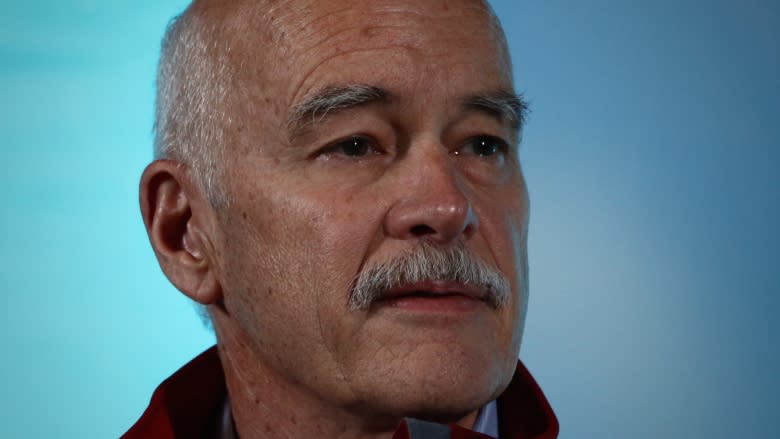Vancouver Aquarium ends lawsuit that boosted interest in critical documentary

Gary Charbonneau says he'll miss the free publicity the Vancouver Aquarium brought to his otherwise obscure documentary by suing him for copyright infringment.
But the filmmaker isn't complaining about the aquarium's decision to drop the suit this week.
"It was a major faux pas for the aquarium to bring this lawsuit forward. My numbers went from 5,000 views to 30,000 views after they sued me within a week. And the conversation about the aquarium and the film has been non-stop because of the lawsuit," said Charbonneau.
"They inadvertently did me a huge favour, because I didn't have the money for marketing or advertising, and they did it for me. It turned out to be a blessing in disguise."
'Not going to complain'
The aquarium filed a notice of discontinuance in B.C. Supreme Court on Tuesday, bringing to an end a two-year legal odyssey that rallied animal rights activists to Charbonneau's side in defence of free speech and undercover camera work.
Charbonneau said the notice came shortly before his lawyer was set to examine the aquarium's chief executive officer, John Nightingale.
"Part of me wants to have my day in court," he said. "There's a lot of information that the public needs to hear about the management and how they operate the aquarium, but I'm not going to complain about this withdrawal."
Charbonneau's hour-long documentary Vancouver Aquarium Uncovered raises questions about keeping and breeding cetaceans in captivity.
But the documentary included images taken from the aquarium's website and blog as well as footage Charbonneau filmed on the organization's premises.
The aquarium sued for copyright, also claiming Charbonneau had violated the terms of a contract he signed to film on the aquarium grounds, which they said forbade him from using the footage for commercial purposes.
In response, Charbonneau claimed any use of the material was covered under the Copyright Act as fair dealing for the purpose of research and education.
He also said the film was made for non-commercial purposes and the material was credited at the end.
'Part of a public dialogue'
The case drew animal rights activists and civil libertarians to Charbonneau's side when a B.C. Supreme Court judge granted the aquarium a preliminary injunction ordering the filmmaker to excise 15 segments from the film.
Camille Labchuk, the executive director of Animal Justice, says her organization saw the potential for a dangerous precedent in the ruling.
"We saw that as a red flag pretty early on, because it would embolden animal use industries like farms, like zoos potentially — anytime an animal use industry is hit with somebody filming their operation, they could potentially use copyright law to try at a preliminary stage to get those images taken down and removed and essentially silence the public debate," she said.
The B.C. Appeal Court essentially agreed, overturning the lower court ruling.
"This is an unusual copyright case in that the injunction will, in part, silence criticism of the Aquarium and potentially stifle public debate on a topic of great interest to the community," wrote Madam Justice Elizabeth Bennett.
"The film is part of a public dialogue and debate on the issue of whether cetaceans should be kept in captivity, and thus, the Charter value of freedom of expression must weigh against granting the injunctive relief."
Swimming with the tide
In announcing its decision to discontinue the lawsuit against Charbonneau, the aquarium said its intent was never to silence Charbonneau — merely to prevent him from using the organization's copyrighted material.
A lot has changed on the whale-in-captivity front since Charbonneau's documentary had its first public screening.
After years of back and forth, the Vancouver Park Board imposed a ban on the aquarium bringing in cetaceans or exhibiting them for entertainment.
The aquarium challenged the ban in court and won. And now the park board is appealing.
Meanwhile, the aquarium has decided unilaterally to do what critics like Charbonneau have been asking for years: announcing in January its decision to stop housing dolphins and whales altogether.

